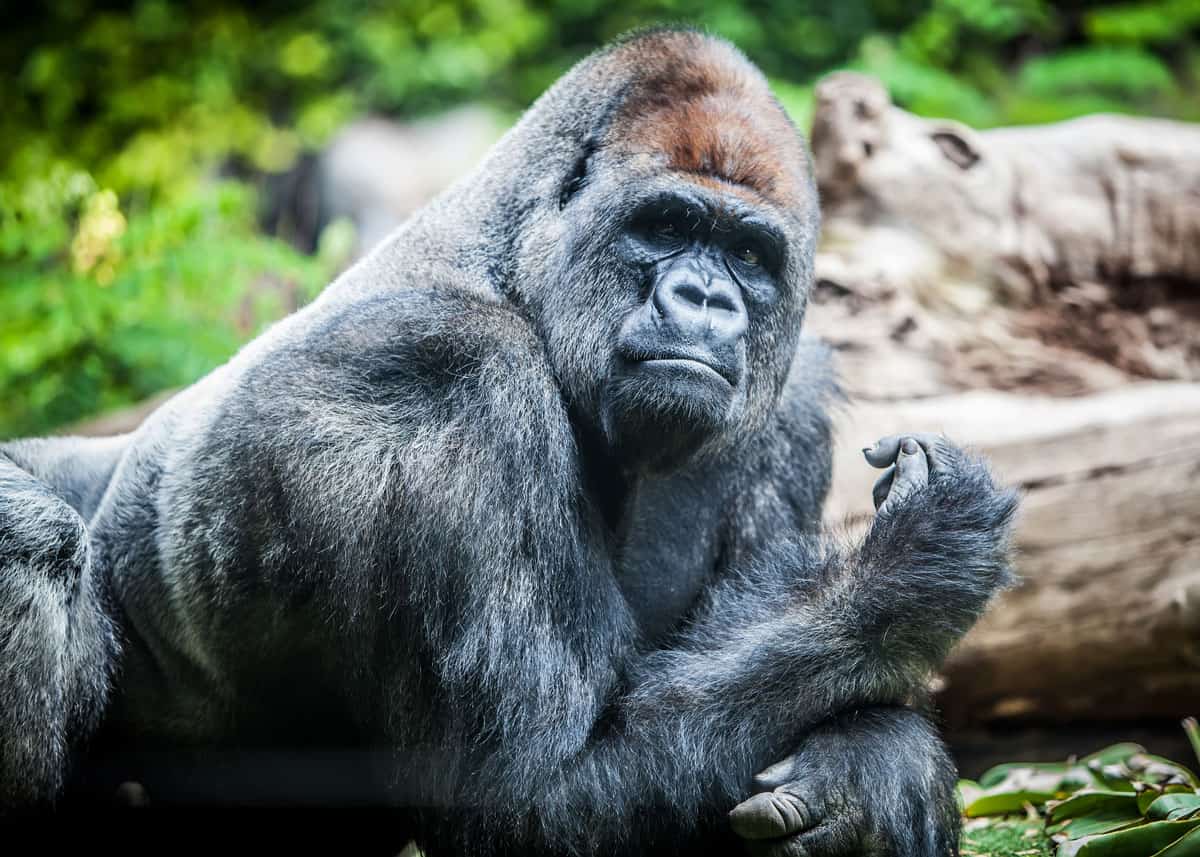WOTC's recent moves with the OGL demonstrated the company's influence on small publishers. What will they do now?
It wasn't until the debut of the Open Game License that D&D finally embraced the community in a way that was beneficial to both the D&D brand and the pro-am community. Ryan Dancey, VP at Wizards of the Coast (WOTC) leading Dungeons & Dragons at the time, called it the Skaff Effect:
The downside for WOTC is that they do not have much control over these creators. The company used their licensed worlds as a carrot to encourage participation in DMs Guild, but the other platforms are not bound by any other constraints beyond the OGL. For a company that increasingly defines its licenses as brands, this lack of control is an existential threat. While tabletop D&D is unlikely to bring anywhere near the level of income as a movie or other brand channels, it can potentially harm that brand.
Most of those customers congregate in a few key places: crowdfunding platforms (e.g., Kickstarter), distribution platforms (e.g., DMs Guild and DriveThruRPG), and virtual platforms (e.g., Roll20 and Fantasy Grounds). They also gather on social media and web sites like EN World, but that's one step removed from purchasing a product and less prone to WOTC's influence.
On Kickstarter alone, there were nearly 1,700 5E campaigns launched. On Roll20, the last ORR Group Industry Report in 2021 listed 55% of campaigns and 60% of accounts affiliated with 5E. Roll20's user base doubled from 5 million in 2020 to 10 million 2022, which means 6 million accounts are affiliated with 5E. At DriveThruRPG, there are over 8,500 5E OGL products for sale.
Collectively, this is an enormous footprint, and the ecosystem to feed it is filled with small and large OGL content producers. It takes a lot to disrupt a system this massive, but as WOTC has demonstrated, it can be done.
If the company attempts to lock down their products on other platforms, their first targets will be the largest. Putting aside Kickstarter (which was mentioned in the leaked draft of the OGL), Roll20 could conceivably be ordered to remove their support and limit virtual play to D&D Beyond. This would create a devastating cascade, as players would no longer be able to play on their favorite virtual platform with licensed material. Similarly, DriveThruRPG could wipe out entire businesses simply by removing the ability to designate content as 5E-OGL compatible.
The next most influential group are the mid-size RPG publishers. Paizo is launching an Open RPG Creative License (ORC) for future products, and several other companies are launching their own game systems, including MCDM Productions, Kobold Press (Black Flag), and EN Publishing (WOIN and Advanced 5E SRD).
Below mid-tier publishers are the smaller publishers, who are being courted by the above group. With multiple game licenses competing for their allegiance, some small publishers may choose to move entirely away from the new OGL, or engage with some or all of those licenses. More likely, they'll stick with the games they know, a personal decision determined by the company owners and their peer groups.
But the most important group of all are players. D&D's brand share is enormous, almost synonymous with tabletop role-playing. And yet as the OSR and Pathfinder's success demonstrated, there's a significant market of players who like older systems. Convincing players to play something else will be difficult. As Scott Thorne put it on ICv2:
We're All Creators Now
Part of Dungeons & Dragons' popularity is how it propagates itself. D&D is a machine that makes more D&D, prompted by dungeon masters and shaped by players everywhere. A thriving fan community isn't just part of what makes D&D popular, it's required for play: D&D needs dungeon masters and players willing to join them. That need to find players drives DMs to share their work, on an amateur and professional level. In the early days, TSR had a love/hate relationship with this community, relying on its fandom to buy their products and attempting to quell rivals who published compatible content.It wasn't until the debut of the Open Game License that D&D finally embraced the community in a way that was beneficial to both the D&D brand and the pro-am community. Ryan Dancey, VP at Wizards of the Coast (WOTC) leading Dungeons & Dragons at the time, called it the Skaff Effect:
With that in mind, the OGL drastically reduced the cost of entry for new creators to develop new gaming content compatible with D&D:All marketing and sales activity in a hobby gaming genre eventually contributes to the overall success of the market share leader in that genre.
This ecosystem has thrived, encouraged in no small part thanks to virtual tabletops like Roll20 and Fantasy Grounds and content distribution platforms like DriveThruRPG and DMs Guild. With a critical mass of customers in one place, WOTC has guided but not completely owned this movement.The logical conclusion says that reducing the "cost" to other people to publishing and supporting the core D&D game to zero should eventually drive support for all other game systems to the lowest level possible in the market, create customer resistance to the introduction of new systems, and the result of all that "support" redirected to the D&D game will be to steadily increase the number of people who play D&D, thus driving sales of the core books. This is a feedback cycle -- the more effective the support is, the more people play D&D. The more people play D&D, the more effective the support is.
The downside for WOTC is that they do not have much control over these creators. The company used their licensed worlds as a carrot to encourage participation in DMs Guild, but the other platforms are not bound by any other constraints beyond the OGL. For a company that increasingly defines its licenses as brands, this lack of control is an existential threat. While tabletop D&D is unlikely to bring anywhere near the level of income as a movie or other brand channels, it can potentially harm that brand.
Where Customers Roam
Selling to customers is a lot like hunting: finding customers where they're at requires businesses to figure out what those customers have in common and where they congregate. In the tabletop gaming world, one of the major factors in determining a customer base is determined by their interest in a rules system. And one of the biggest is the latest iteration of Dungeons & Dragons.Most of those customers congregate in a few key places: crowdfunding platforms (e.g., Kickstarter), distribution platforms (e.g., DMs Guild and DriveThruRPG), and virtual platforms (e.g., Roll20 and Fantasy Grounds). They also gather on social media and web sites like EN World, but that's one step removed from purchasing a product and less prone to WOTC's influence.
On Kickstarter alone, there were nearly 1,700 5E campaigns launched. On Roll20, the last ORR Group Industry Report in 2021 listed 55% of campaigns and 60% of accounts affiliated with 5E. Roll20's user base doubled from 5 million in 2020 to 10 million 2022, which means 6 million accounts are affiliated with 5E. At DriveThruRPG, there are over 8,500 5E OGL products for sale.
Collectively, this is an enormous footprint, and the ecosystem to feed it is filled with small and large OGL content producers. It takes a lot to disrupt a system this massive, but as WOTC has demonstrated, it can be done.
5' or 10' Reach?
The first and most influential group is the current D&D brand owner, Wizards of the Coast. The recent OGL kerfuffle demonstrated how dependent the ecosystem is on the interconnectivity of the license and the distribution platforms which are not (currently) owned by WOTC. It's also a roadmap to what WOTC might try as it pushes D&D Beyond as the primary digital distribution and virtual tabletop platform.If the company attempts to lock down their products on other platforms, their first targets will be the largest. Putting aside Kickstarter (which was mentioned in the leaked draft of the OGL), Roll20 could conceivably be ordered to remove their support and limit virtual play to D&D Beyond. This would create a devastating cascade, as players would no longer be able to play on their favorite virtual platform with licensed material. Similarly, DriveThruRPG could wipe out entire businesses simply by removing the ability to designate content as 5E-OGL compatible.
The next most influential group are the mid-size RPG publishers. Paizo is launching an Open RPG Creative License (ORC) for future products, and several other companies are launching their own game systems, including MCDM Productions, Kobold Press (Black Flag), and EN Publishing (WOIN and Advanced 5E SRD).
Below mid-tier publishers are the smaller publishers, who are being courted by the above group. With multiple game licenses competing for their allegiance, some small publishers may choose to move entirely away from the new OGL, or engage with some or all of those licenses. More likely, they'll stick with the games they know, a personal decision determined by the company owners and their peer groups.
But the most important group of all are players. D&D's brand share is enormous, almost synonymous with tabletop role-playing. And yet as the OSR and Pathfinder's success demonstrated, there's a significant market of players who like older systems. Convincing players to play something else will be difficult. As Scott Thorne put it on ICv2:
For the vast majority of D&D players, where the game is sold and who supports it may not be a concern. But for small publishers, where the herd ends up will determine who they support ... or if they continue publishing at all....I do not expect demand for ORC licensed products to account for single digit sales by the end of the year simply because players, for the most part, do not care who produces their game products. They want to play D&D and the first products they will buy are those with the D&D logo on them. Other OGL 1.0 products sell but not with the frequency of a D&D-branded product. While the publishers making materials either under the ORC or another open license do have a fan base, they do not necessarily command customer loyalty or demand at the same level that D&D does.







